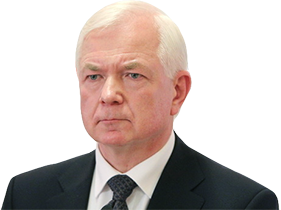The hostage exchange is the most painful issue that Russia and the militants utilize as a means of influencing the Donbas settlement negotiation process and Ukrainian leadership’s decision-making. This is a painful issue because it is about real people and their fate.
At the beginning of the Minsk format, a model for the all-for-all prisoner exchange was foreseen. But then, even at the highest level of negotiations involving Poroshenko, Merkel, Hollande and Putin, the issue failed to be resolved. And then the speculations started. It was an advantage for the opponents to place on top agenda the issue of elections in the occupied areas of Donetsk and Luhansk regions, which would have been held under Russian control. That is, they sought to prioritize political issues, not those of security and prisoners' exchange.
Anyone may become militants’ hostage: either it’s someone who gives a "wrong" answer to some question or someone’s last name is "wrong"… That is, the militants detain citizens under some fictitious pretext and then hold them in captivity in detention centers or elsewhere.
Although some prisoners have actually been swapped, the militants need to keep as many hostages as possible in order to continue to take advantage of this extremely vulnerable issue - the fact that Ukrainian hostages remain in captivity “because the Ukrainian side is not doing the right thing.” That is why the militants have now resorted to arresting people at crossings along the contact line in Donbas or at the de-facto border between mainland Ukraine and the Russian-occupied Crimea. Moreover, people are being detained under any pretext. Anyone may become militants’ hostage: either it’s someone who gives a "wrong" answer to some question or someone’s last name is "wrong"… That is, militants detain citizens under some fictitious pretext and then hold them in captivity in detention centers or elsewhere (and nobody is looking for any legal grounds for detention at all, in particular, in the case of a detained citizen Rudenko, who was subsequently released).
Most often, people are simply accused of cooperation with Ukraine’s intelligence. This is used as a base to launch investigations by "law enforcers" and "courts" of "LPR" and "DPR." And thus, the militants form a pool of Ukrainian citizens that can be offered for exchange.
So today we see mere speculation on the part of militants around the issue of hostage exchange. The Russian-controlled puppets accumulate a "swap material," as they put it, and then try to bargain at the political level. They are trying to convince others that they are ready for exchange, while the Ukrainian side “does nothing.” But one should not forget that at the same time, militants demand the release of their political figures, detained operatives of Russian intelligence services, as well as criminals who were thrown behind bars on general criminal offenses. In such situations, there can be no exchange, of course.
As a result, on this background the general rejection of other points of the Minsk agreements is being formed. Militants say that the Ukrainian side is stalling the process by failing to put up for the exchange those whom terrorist demand released. So, now militants are capturing ordinary Ukrainian citizens and then, during negotiations at all levels, they will demand to make an exchange first, to move on to other issues on the negotiations agenda. At the same time, at an international level, the enemy says that there are no concessions on the part of Ukraine and starts raising the issue of holding elections in the occupied territories, also bringing other political issues to the fore, in order have them considered in a package with the question of prisoner exchange.
Army General Mykola Malomuzh is a former head of the Foreign Intelligence Service of Ukraine


